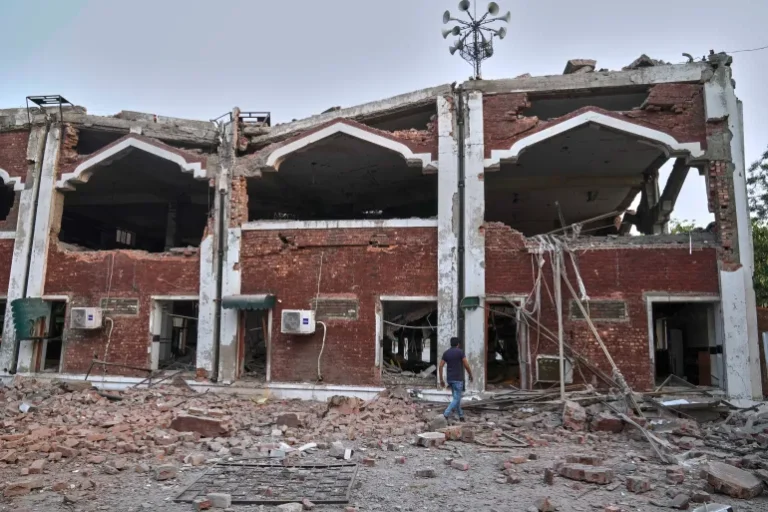Tensions between Pakistan and India escalated in the early hours of Wednesday when India launched airstrikes on six locations, including areas in Punjab’s Sialkot and Bahawalpur, as well as Azad Jammu and Kashmir. In response, the Pakistani military shot down five Indian fighter jets.
The Indian army reportedly launched the strikes around 1 a.m. on Wednesday, under a military operation they called ‘Operation Sindoor’. Pakistan’s military confirmed the attacks and stated that India had launched them from its own airspace. Initial reports mentioned civilian casualties, and by 4am, Pakistan’s military spokesperson confirmed that at least eight civilians had lost their lives. The number of civilian deaths had risen to 31, with 46 others injured across the targeted areas.
The Pahalgam tragedy, which took place on April 22, 2025, was swiftly blamed on Pakistan by Indian authorities,despite the lack of any concrete evidence. Pakistan, on the other hand, expressed its willingness to cooperate with an international investigation to uncover the truth. However, India has so far failed to provide any verifiable proof to support its allegations. The attacks were exclusively carried out within the mosque.
Pakistan’s Response and India’s De-Escalation Effort
“In the wake of the Pahalgam attack, the Indian leadership has once again used the bogey of terrorism to advance its sham narrative of victimhood, jeopardizing regional peace and security. India’s reckless action has brought the two nuclear-armed states closer to a major conflict,” according to a statement from the Pakistan Foreign Office.
“Pakistan only responded in self-defence. It is India which cowardly attacked Pakistan and violated our territorial integrity and sovereignty, killing innocent citizens including children, women, and the elderly. Pakistan reserves the right to respond to its aggression at a time, place, and means of our own choice,” stated a spokesperson for the Pakistan military.
By early morning, signs of de-escalation began to emerge. At a press briefing around 7am, Information Minister Attaullah Tarar claimed that India had raised a white flag at the Line of Control, signalling what he described as an admission of defeat. As he spoke to the media, national broadcaster Pakistan Television News aired footage appearing to show a white flag hoisted on a structure.
According to the report, the flag was raised by the Indian army at the Chora Complex along the LoC. “They have been forced to wave a white flag,” Tarar said.
Tarar also stated that several Indian military posts across the border had been destroyed by Pakistan’s armed forces during the retaliation. He reiterated that Pakistan had called for a transparent investigation into the Pahalgam attack, but instead of cooperating, India launched strikes and then distanced itself from the consequences. “It is a cause of shame for them that they targeted innocent labourers and citizens,” he said.
The minister emphasised that Pakistan’s response was limited strictly to military targets and that no Indian civilians were harmed in its retaliatory actions.
As Pakistan responded, two Indian jets were downed by around 2:45am, followed by a third an hour later. The fourth and fifth jets were confirmed hit after 5am, according to the Pakistan military spokesperson.
International Response: Global Calls for De-Escalation and Diplomacy
When asked by reporters at the White House about the recent strikes, US President Donald Trump expressed dismay over the escalating situation, calling India’s actions a “shame.” He said, “It’s a shame we just heard about it… I guess people knew something was going to happen, based on a little bit of the past. They’ve been fighting for a long time… I just hope it ends very quickly.” His remarks reflected the growing concern over the conflict between the two nuclear-armed neighbors, with Trump emphasizing the long history of tension in the region.
Meanwhile, the White House also highlighted efforts to mediate the crisis, with Senator Marco Rubio reportedly speaking with both Indian and Pakistani counterparts. Rubio encouraged both sides to engage in direct dialogue and work toward a peaceful resolution. “He is encouraging India and Pakistan to re-open a channel between their leadership to defuse the situation and prevent further escalation,” said US National Security Council spokesman Brian Hughes in a statement.
On the global stage, the response continued to highlight the urgency for peace. Japan’s Chief Cabinet Secretary Yoshimasa Hayashi expressed strong concern over the situation, warning that the conflict could spiral into a full-scale military confrontation. He said, “We express strong concern that this situation may lead to further retaliatory exchanges and escalate into a full-scale military conflict. For the peace and stability of South Asia, we strongly urge both India and Pakistan to exercise restraint and stabilize the situation through dialogue.”
Meanwhile, China’s Foreign Ministry spokesperson called India’s military actions “regrettable” and voiced concern over the ongoing conflict. He urged both India and Pakistan to act in the larger interest of peace and stability, emphasizing the importance of calm and restraint. “We are concerned about the ongoing situation. We urge both sides to act in the larger interest of peace and stability, remain calm, exercise restraint, and refrain from taking actions that may further complicate the situation.”
Source: Al Jazeera, Dawn.com


